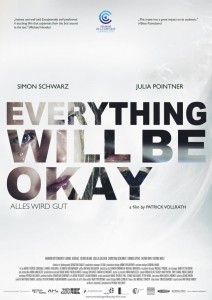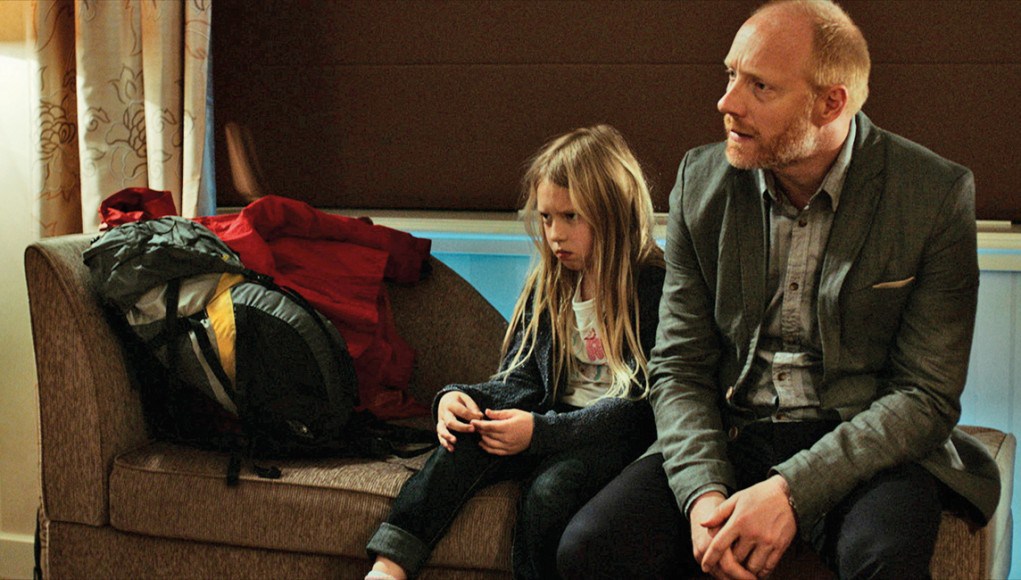Oscar Nominated Short Films
One of the things that I love about the Academy Awards, is that the ceremony helps draw attention to films that might not normally be on the radar of the popular culture consciousness. While movie-goers are cognizant of some of the bigger films on this year’s award-season slate (THE REVENANT, ROOM, SPOTLIGHT, MAD MAX-FURY ROAD, etc.) the same cannot be said about some of the lower profile ventures. This is particularly true when it comes to the Oscar nominated short films. Often overshadowed by their blockbuster brethren, the Academy Awards allow these passion projects to shine on Hollywood’s biggest night, and helps draw attention to these under-the-radar gems.  For years, it was virtually impossible for the average movie-goer to track down these elusive shorts. With the dawn of the digital age, however, the films have become much more accessible. Some of this year’s nominees are already available on Netflix (CHAU, BEYOND THE LINES, WORLD OF TOMORROW) while the others are available through Shorts.tv. As of February 23, every one of this year’s nominees became available through Amazon, iTunes, and Google Play. Here is a look at my favorite film in each of the categories.
For years, it was virtually impossible for the average movie-goer to track down these elusive shorts. With the dawn of the digital age, however, the films have become much more accessible. Some of this year’s nominees are already available on Netflix (CHAU, BEYOND THE LINES, WORLD OF TOMORROW) while the others are available through Shorts.tv. As of February 23, every one of this year’s nominees became available through Amazon, iTunes, and Google Play. Here is a look at my favorite film in each of the categories.
Best Documentary, Short Subject
Chau, Beyond the Lines
There is no denying that in the realm of film criticism, words such as “unforgettable” and “haunting” are tossed around far too often. When it comes to the documentary CHAU, BEYOND THE LINES, however, even these words fail to capture the true essence of this inspiring and heart-wrenching story.
The film, directed/produced by Courtney Marsh and co-produced by Jerry Franck, begins in a care center for children in Vietnam. It is here we meet Chau, a personable, enigmatic teenager who has big plans for his future. He longs to become a professional artist and clothes designer, and believes that he possesses the talents needed in order to make this dream a reality. While these would certainly be considered lofty goals for anyone, in Chau’s case, his aspirations are made even more difficult by the fact that he is physically disabled.
Before he was born, Chau’s mother drank from a river that had been contaminated by Agent Orange which had been drop ped by the United States at the height of the Vietnam War. Though she had two children who were unaffected by this seemingly innocuous action, Chau wasn’t as fortunate. His mind was as sharp as anyone’s, but his limbs failed to fully develop. As a result, he is unable to stand on his own two feet, and though he has use of his arms, the capacity is limited, and the effort he must exert in order to execute each and every task is staggering. Despite these obstacles, he spends a great deal of his time creating art, much to the chagrin of his caregivers. It is their belief that he needs to prepare for life outside of the center and that he should stop wasting his time with silly drawings.
Marsh and Franck’s incredible film follows Chau’s progression from his time at the care center, to the years that followed his departure. Despite the seemingly endless obstacles facing him, Chau is not only determined to make it on his own, but to achieve the seemingly impossible professional aspirations he longed to achieve while he was in the confines of the center.
Chau’s plight is a perfect subject for a documentary such as this. His story is one that longs to be told, and one that deserves every bit of the global attention that it is now receiving due to the Academy Award nomination. He is a young man of incredible courage and determination who faces unfathomable difficulties on a daily basis, yet remains resolved in his belief that he was destined for greatness.
Though this is a story that revolves around one central figure, CHAU, BEYOND THE LINES is about much more. The images that unfold during the time that the filmmakers spent within the care center will permanently sear themselves into the mind of every viewer who witnesses them. We see dozens of children who laugh and play as much as any child you have ever known, yet have been severely disabled by the Agent Orange that was dropped on their country decades ago. Marsh and Franck’s film does not directly condemn the United States for their use of Agent Orange, but does shine a blinding light on the plight of a nation whose children continue to suffer severe debilitating disabilities long after the War has ended. From a sweet girl with an angelic voice telling visitors that she doesn’t know anything about the substance that confined her to a wheelchair, to a young boy who gently kissed the cheek of his caregiver when he was told that he would be receiving a surgery that would help create a thumb on his hand, it is impossible not to be moved and heartbroken by the unjust circumstances that befell the innocent children of parents who just so happened to take a drink of tainted water.
 Best Live Action Short
Best Live Action Short
Everything Will Be OK
There are a number of elements that need to cohesively blend together to create a masterful work in the dramatic-thriller genre. Other than the simplistic proclamation that you need a good story and excellent direction to make this type of film succeed, it is difficult to define the minute details that are needed in order to force the viewer to move a little closer to the edge of their seat with each passing minute. There is, however, little doubt that pacing and performances are essential to illicit the emotions you want out of your audience. These factors are difficult to deliver in the course of a feature length production, and become exponentially more taxing in the short film format. With his live action short EVERYTHING WILL BE OKAY, writer/director Patrick Vollrath takes on these monumental tasks with stunning results.
EVERYTHING WILL BE OKAY starts innocently enough. An agitated man named Michael (Simon Shwarz) impatiently buzzes at the front gate of a home, obviously in a hurry for some unknown reason. After several more emphatic presses of the button, a woman (Marion Rottenhofer) and a young girl (Julia Pointer) emerge from the home. The school-aged girl is Lea, and Michael is her father. The two get into their vehicle to leave, when a second man (Daniel Keberle) comes running down the walkway, leans towards the passenger window, and delightfully tells Lea to have a nice time.
As father and daughter ride in the car, Lea explains her role in an upcoming school play, and is overjoyed when Michael takes her to a toy store to buy whatever she wants. While the girl searches amidst the many aisles, her father impatiently checks his watch and encourages her to make her choice a little more quickly. After the selections have been made, and the bill has been paid, the two head to a photo booth to get their picture taken together. Up until this point, nothing about their actions or words raises any concerns, but when Michael delicately demands that Lea look “natural” and not stick out her tongue out for the photograph, you begin to get the inkling that something is amiss.
From this point on, Michael begins to execute a series of actions that prove that whatever is unfolding may be a bit more ominous than a typical day with daddy. Though we, as an audience, comprehend what is happening long before Lea does, you can almost pinpoint the moment when the 8-year-old realizes that something is amiss. It is in these strenuous moments when you initially realize just how great the performances by Shwarz and Pointer truly are. It is obvious that Michael loves his daughter, perhaps more than anything else in this world, but he is so focused and intent on seeing his plan through to fruition that he loses sight of the girl’s fragility and fear. Shwarz exudes an air of unwavering determination in his portrayal. In the opening minutes of the film, he seems like nothing more than a loving, doting, dutiful father who is capitalizing on the fleeting time he has with his beloved daughter. This makes his abrupt shift and future actions all the more intense and disconcerting. Conversely, Pointer is absolutely spectacular as the blissfully unaware Lea. For her, the day begins with a fun trip to the toy store, and includes an excursion to a fair. As she begins to notice the changes in her father’s attitude and demeanor however, you can see the concern begin to etch across her face. The tumultuous roller-coaster that is to follow is tackled masterfully by the talented youngster, as she displays genuine emotion rather than simply reciting words and actions that were originally placed on the pages of her script. The result of their performances, coupled with Vollrath’s story and direction, helps evolve EVERYTHING WILL BE OKAY to be a must-see slow-burn thriller.
Best Animated Short
World of Tomorrow
For those unfamiliar with the work of Don Hertzfeldt, you won’t find a better starting point to dive into his surreal filmography than this year’s Oscar-nominated film, WORLD OF TOMORROW. His startlingly unique animation style is at its peak in this highly entertaining production. Couple this with a fascinating and thought-provoking story, and you have a film that sets itself apart from the majority of animated films you are ever likely to see.
WORLD OF TOMORROW is about a little girl named Emily who is contacted by a clone of herself that resides hundreds of years in the future. The clone begins to explain the complexities of time travel, life experiences, tragedy, joy, and love to the clueless toddler, and even transports her into the future to allow her to get a taste of what life will be like centuries from now.
What initially starts as crudely drawn stick-figure characters evolves into a surreal, trippy work of art that eviscerates conventionalism. The story behind the creation of WORLD OF TOMORROW is as bold and innovative as the film itself. While drawing and playing with his 4-year-old niece, Hertzfeldt recorded their conversations. From there, he built a story around her words and proclamations. The result is a tale that at times is hilariously funny, and in others, dark and oddly insightful.
Beyond this, it is difficult to pinpoint the cause of WORLD OF TOMORROW’s greatness. Part of the reason it succeeds is its ability to defy explanation, and is the very reason why it emerges as the most memorable and impactful film in its Academy Award category.










